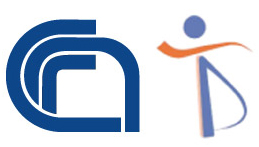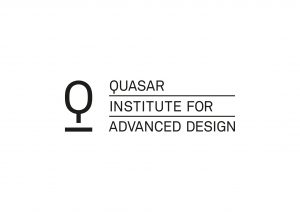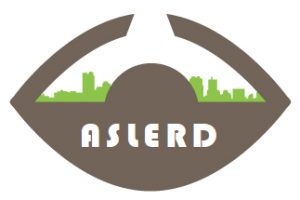note: F = full paper (20’+ 5′), S = short paper (15’+ 5′), FC = flash communication (8′ + 2′)
Paper session I
The virtue of design … and that of technological environments
23rd May, 11:20 – 13:00
chair: Imran Zualkernan
• (F) Patrizia Marti and Fabienne van Leiden.
Teaching Experience Design using poems as cultural probes
• (S) Barbara Angi, Lavinia Chiara Tagliabue, Barbara Badiani and Angelo Luigi Camillo Ciribini.
The International Summer School for Advanced Studies UniBS: CONTEMPORARY IDENTITIES Interweaving spaces and relations in the design of living services
• (FC) Giuseppe Roccasalva.
A toolkit to co-designing processes: a comparison of 5 public space research experiences
• (F) Pedro Cabral, João Paz and António Teixeira.
The impact of a research-based institutional strategy for opening up educational practices: The case of the MOOC-Maker project
• (S) Rosa Di Maso and Maria Beatrice Ligorio.
Engagement in a Blended University Course
• (FC) Alice Barana, Stefano Boffo, Francesco Gagliardi, Rossella Garuti and Marina Marchisio.
Empowering Engagement in a Technology Enhanced Learning Environment
Paper session II
Schools: evaluation and design
23rd May, 15:00 – 16:10
chair: Ante Runnquist
• (F) Carlo Giovannella
The ASLERD Pyramid of Smartness: a study on the stability of indices and indicators in schools.
• (F) Óscar Mealha, José Nunes and Fernando Delgado.
Smartness comparison amongst different age-group students in an integrated school: the potential for design and management
• (S) Lara Sardinha, Ana Margarida Almeida and Neuza Pedro.
A Multidimensional space approach to Innovative Learning Environments
Paper session III
Toward future technological tools and environments
23rd May, 16:30 – 18:00
chair: Matthias Rehm
• (F) Antonella Carbonaro.
Concept integration to develop next generation of technology enhanced learning systems
• (F) Anda-Madalina Florea, Mihai Dascalu, Dorinela Sirbu and Stefan Trausan-Matu.
Improving Writing for Romanian Language
• (S) Antonella Poce, Carlo De Medio and Francesca Amenduni.
A prototype for the automatic assessment of Critical Thinking
• (S) Iulia Pasov, Mihai Dascalu, Nicolae Nistor and Stefan Trausan-Matu.
Prediction of Newcomer Integration in Online Knowledge Building Communities using Time Series Analyses
Paper session IV
Learning ecosystems and regional development
24th May, 10:15 – 11:00
chair: Stefania Manca
• (F) Agita Livina and Sarmite Rozentale.
Challenge of Talent Attraction in Small and Medium Urban Areas: Case of Valmiera City, Latvia
• (FC) Llpo Laitinen and Roberta Piazza.
Smart City Community Engagement Through Learning
• (FC) Corrado Petrucco.
Meaningful Learning by Creating Knowledge Boundary Objects between School and the Workplace
Paper session V
Schools, technologies and contexts
24th May, 11:40 – 13:00
chair: Giuseppe Roccasalva
• (F) Imran Zualkernan and Nour Takiddeen.
Smartwatches for Context-Aware Ubiquitous Learning
• (F) Margarida Morais Marques and Lucia Pombo.
Game-based mobile learning with augmented reality: Are teachers ready to adopt it
• (S) Lorenzo Dalvit and Tatenda Chatikobo.
Services, Schools and Skills: Mobile Media and local development in a South African rural area
Paper session VI
Disabilities and Interaction
24th May, 14:00 – 15:45
chair: Elvira Popescu
• (F) Raffaella Folgieri, Paola De Vecchi Galbiati, Ludovico Dei Cas and Claudio Lucchiari.
A Cognitive-Driven BCI-Based E-Learning Platform For Learning Disorders: A Preliminary Study
• (F) Tania Di Mascio and Laura Tarantino.
The structured methodological framework “deejay”: foundation and application to the design of an ASD-oriented AAC tool.
• (S) Jailma Bulhoes Campos, Ana Margarida Pisco Almeida and Alberto Signoretti.
Creating New Learning Experiences for Students with Dyslexia: aDesign Thinking and Human-centered Approach
• (FC) Kenneth Deprez, Emiel Holvoet, Esther Reynders, Michelle Vandepoele, Maud Verstringe, Francis Wyffels, Steven Verstockt and Jelle Saldien.
Development of a Smart Cycling Support Device for People with an Intellectual Disability
• (F) Patrizia Marti, Iolanda Iacono, Oronzo Parlangeli and Jelle Stienstra.
Social coordination in Human-Robot Interaction through reciprocal engagement
SLERD 2019 has been supported by:





